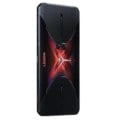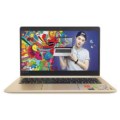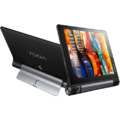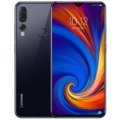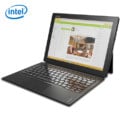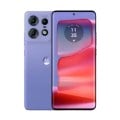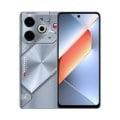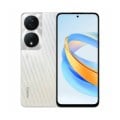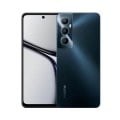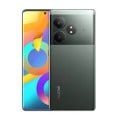Lenovo ThinkPad L13 Yoga
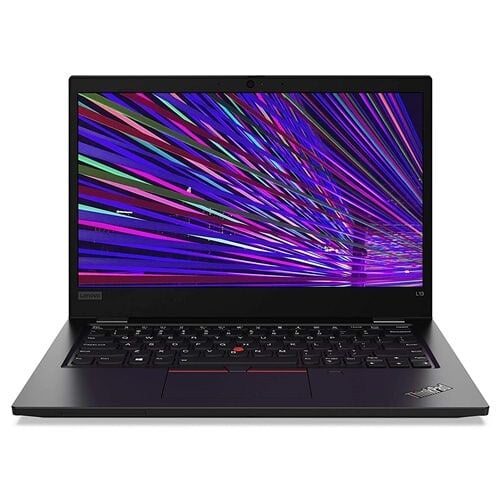

-
Processor: 10th Gen Intel Core i7
-
RAM: 8 GB, 16 GB
-
Storage: 128 GB, 512 GB, 1 TB
-
Display: 13.3 inches
-
Camera: 720P HD Camera with Microphone
-
Operating System: Windows 10 Pro
Lenovo ThinkPad L13 Yoga - PRICE
-
 Lenovo ThinkPad L13 Yoga
$849.99
Lenovo ThinkPad L13 Yoga
$849.99
View Offer
Lenovo ThinkPad L13 Yoga is officially released on Dec. 6, 2019.
The laptop is pack with 8 GB and 16 GB RAM with 128 GB Solid State Drive, 1 TB SSD, and 512 GB SSD. It is powered by the 10th Generation Intel Core i5-10210U and i7-10510U processors.
The camera features720P an HD Camera with a Microphone run on Windows 10 Home 64 operating system. The size is 13.3 inches FHD IPS that provides a resolution of 1920 x 1080 pixels.
The battery of the device is fueled with 46Wh includes Rapid Charge and runs for 12 hours. The laptop comes with Discrete Trusted Platform Module (dTPM) 2.0, Fast Identity Online (FIDO) authentication capabilities, an IR camera (for login with Windows Hello), and a Match-on-Host fingerprint reader.
Additionally, it is integrated with the ThinkShutter webcam privacy cover and Kensington lock slot. The audio includes Noise-cancelling dual-array far-field microphones and Dolby Audio Premium.
The laptop weighs 1.43 kg and comes in two colors: Black and Silver. The ports and slots of the device include two USB 3.1 Gen 1, two USB-C, a microSD card reader, Optional: Smart card reader, HDMI, Headphone/mic combo, and Network extension for Ethernet.
The keyboard of the laptop has Backlit with white LED lighting and it is spill-resistant. For the latest phones and tablets, check out giztop.com and get the best deals, coupons, offers, comparison, reviews, and more!
Lenovo ThinkPad L13 Yoga - SPECIFICATIONS
General
-
ModelLenovo ThinkPad L13 Yoga
-
ReleasedDec, 2019
-
StatusAvailable
Design
-
Type Design Type called form factor refers to a mobile phone's size, shape, and style as well as the layout and position of major components of phone. There are three major form factors seen in mobile phones => bar phones, folding phones and sliding phones.Bar
-
Dimensions33.78cms
-
Weight1.38kg
-
WaterproofSpill resistant (keyboard)
Display
-
Display Type Display Technology => A number of display technologies and types used in mobile phones => TFT (Thin Film Transistor), IPS (In-Place Switching), OLED (Organic Light Emitting Diode), AMOLED (Active-Matrix Organic Light-Emitting Diode), Super AMOLED (an even advanced version of AMOLED), Resistive Touchscreen (Resistive touchscreens contain two layer of conductive material with a very small gap between them which acts as a resistance), Capacitive Touchsceen (Capacitive touchscreen technology consists of a layer of glass coated with a transparent conductor)FHD IPS
-
Size13.3 inches
-
Resolution1920 x 1080 pixels
-
Display Colors Display Colors is refers to the number of different shades of colors that the screen is capable of displaying => 64K colors, 256K colors and 16 million colors, Obviously 16M is highest available range of colors and better than others.16M Colors
-
Touch ScreenNo
Hardware
-
CPU The main chipset of the device.10th Generation Intel® Core i3-10110U
-
GPU GPU (Graphics Processing Unit) is a single-chip processor designed to rapidly manipulate and alter memory to accelerate the creation of images in a frame buffer intended for output to a display, This includes things such as lighting effects, object transformations, and 3D motion.Intel UHD
-
RAM (Memory) RAM (Random Access Memory) is a type of computer memory that can be accessed randomly, any byte of memory can be accessed without touching the preceding bytes that allows information to be stored and accessed quickly from random locations. RAM is the most common type of memory found in computer systems, smartphones, tablets and other electronic devices.8 GB, 16 GB
-
Internal Storage Internal Storage is a data storage space (flash memory) mostly used in smartphones, tablets and other electronic devices where operating system, apps, music, photos, videos, files and other user data Is stored.128 GB, 512 GB, 1 TB
-
Memory Card Slot Memory Card Slot is a special slot for inserting a memory card. Memory cards allow you to expand the phone's built-in memory, A memory card (sometimes called a flash memory card or a storage card) is a small storage medium used to store data such as text, pictures, audio, and video, for use on small, portable or remote computing devices such as mobile phones, mp3 players, digital cameras.No
Software
-
Operating System OS => Every computer system run on a base software called Operating System (OS). Operating System controls all basic operations of the computer (such as smartphone, PDAs, tablet computers and other handheld devices). The Operating System allows the user to install and run third party applications (apps), apps are used to add new functionality to the device.Windows 10 Pro
-
User Interface UI or user interface of a device is the look and feel of the on-screen menu system. How it works, its color scheme, how it responds to button presses, all of these things are part of the user interface.Yes
Camera
-
Flash Flash Light => There is commonly two types of flash lights are used in camera mobile phones, LED Flash (LED flash offers lower power consumption with drive circuitry that takes up very little room, LEDs can be strobed faster than any other light source), Xenon Flash (xenon flash produces an extremely intense full-spectrum white light for a very short duration)No
-
Front Camera720P HD Camera with Microphone
Network
-
SIM SIM (Subscriber Identity Module) is a small card that contains mobile network subscriber's account information. This allows the phone using the card to attach to a mobile network. The SIM card is most commonly associated with GSM and UMTS mobile networks. Moving a SIM card from one phone to another allows a subscriber to switch mobile phones without having to contact their mobile network carrier. SIM cards can also be used by a phone to store limited amounts of data, such as phone numbers and text messages.Standard SIM
-
Dual SIMNo
Connectivity
-
Wi-fi Wi-Fi is a popular wireless networking technology using radio waves to provide high-speed network connections that allows devices to communicate without cords or cables, Wi-Fi is increasingly becoming the preferred mode of internet connectivity all over the world.Intel WiFi 6 AX201
-
USBType C
-
GPS GPS The Global Positioning System is a satellite-based radio navigation system, GPS permits users to determine their position, velocity and the time 24 hours a day, in all weather, anywhere in the world, In order to locate your position, your device or GPS receiver must have a clear view of the sky.No
-
NFC NFC (Near field communication) is a set of standards for smartphones and similar devices to establish peer-to-peer radio communications with each other by touching them together or bringing them into proximity, usually no more than a few inches.No
-
Wireless Charging Wireless Charging (Inductive Charging) uses an electromagnetic field to transfer energy between two objects. This is usually done with a charging station. Energy is sent through an inductive coupling to an electrical device, which can then use that energy to charge batteries or run the device.Yes
-
Headphone JackYes
Battery
-
Capacity Battery Capacity4 Cell Li-Ion Polymer Internal Battery, 46Wh

